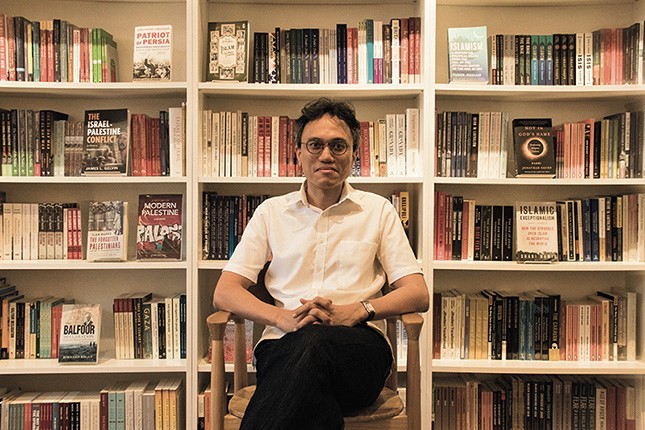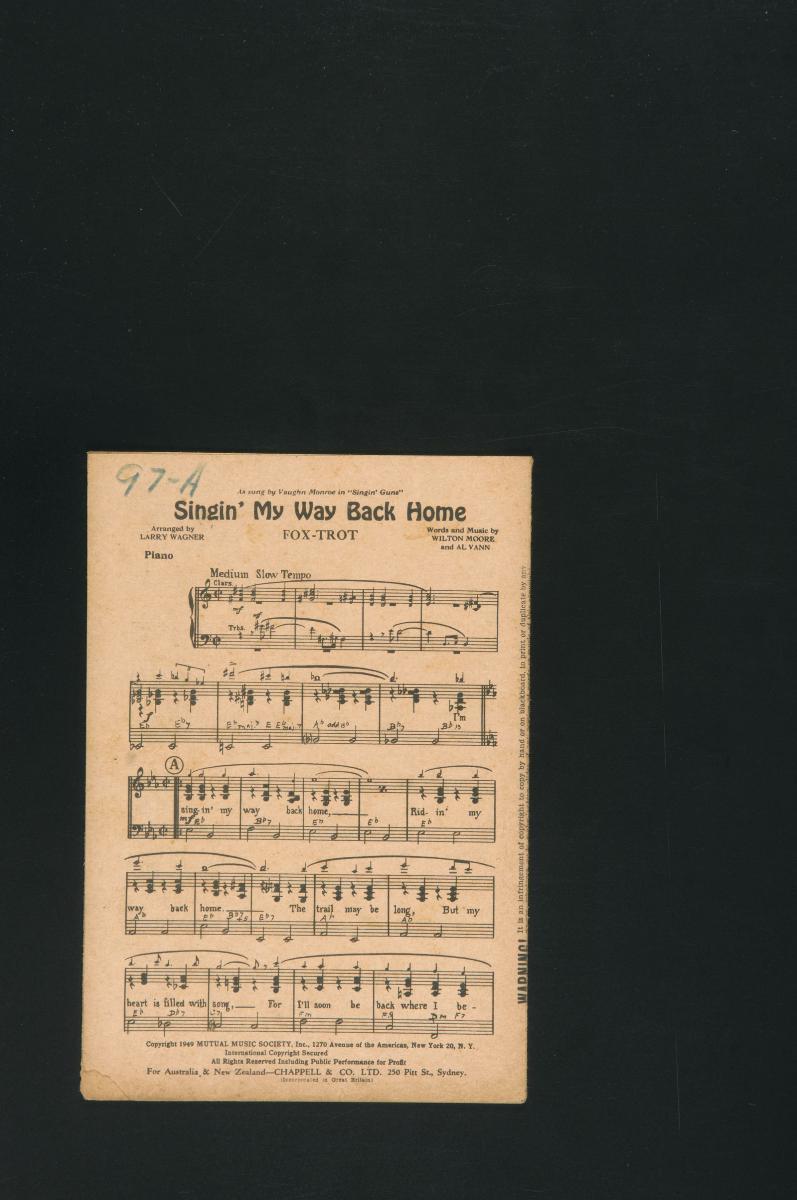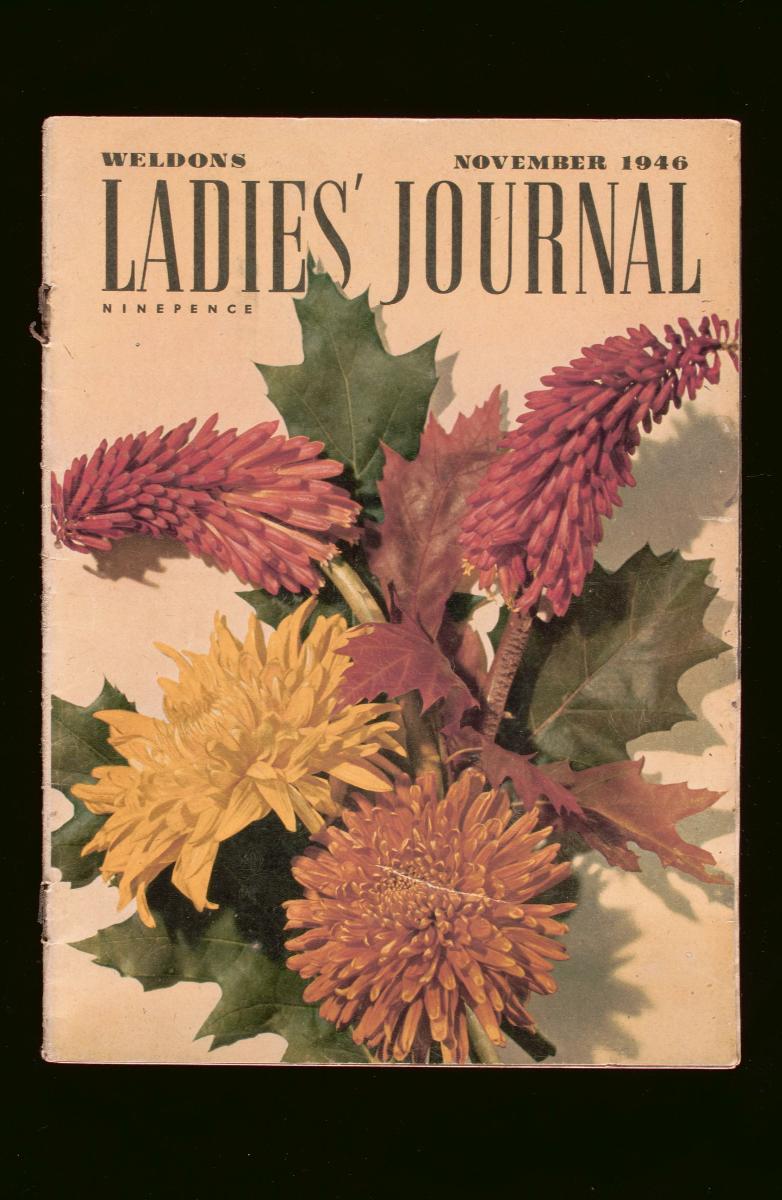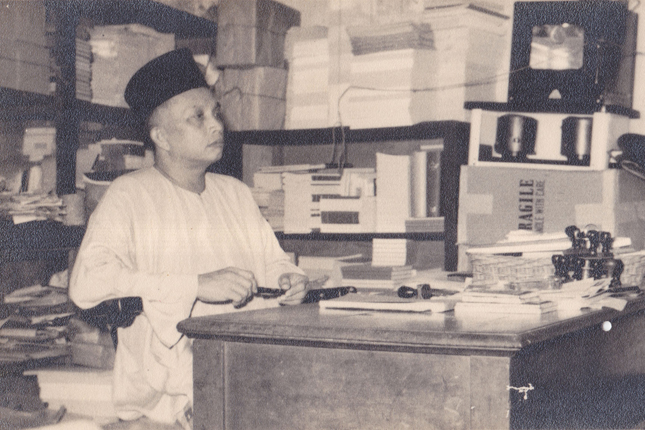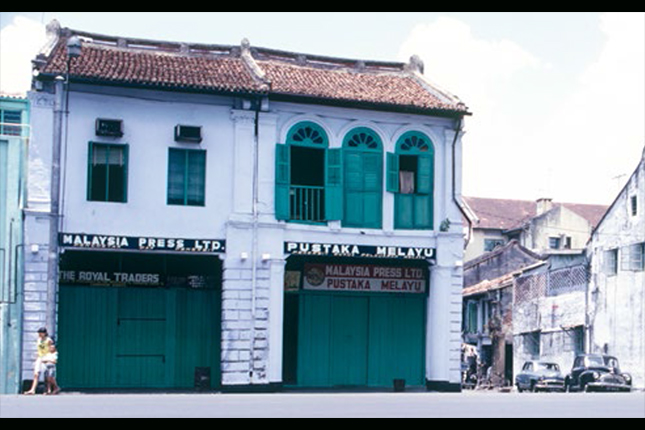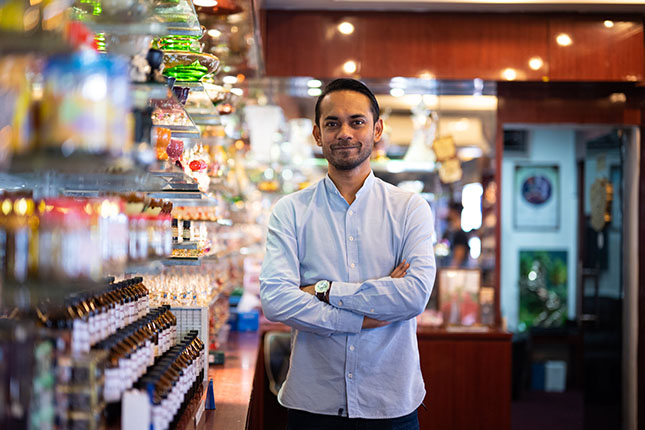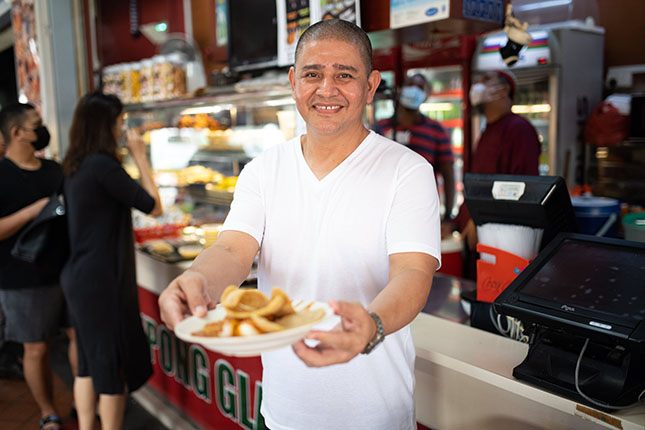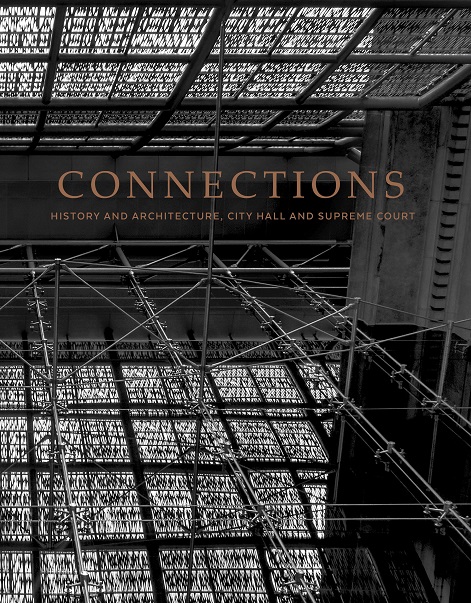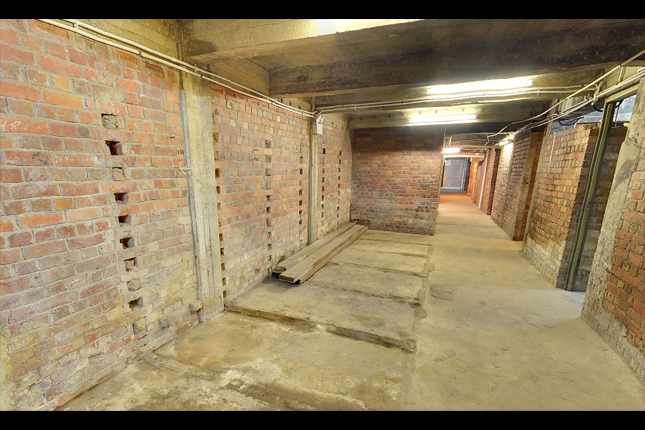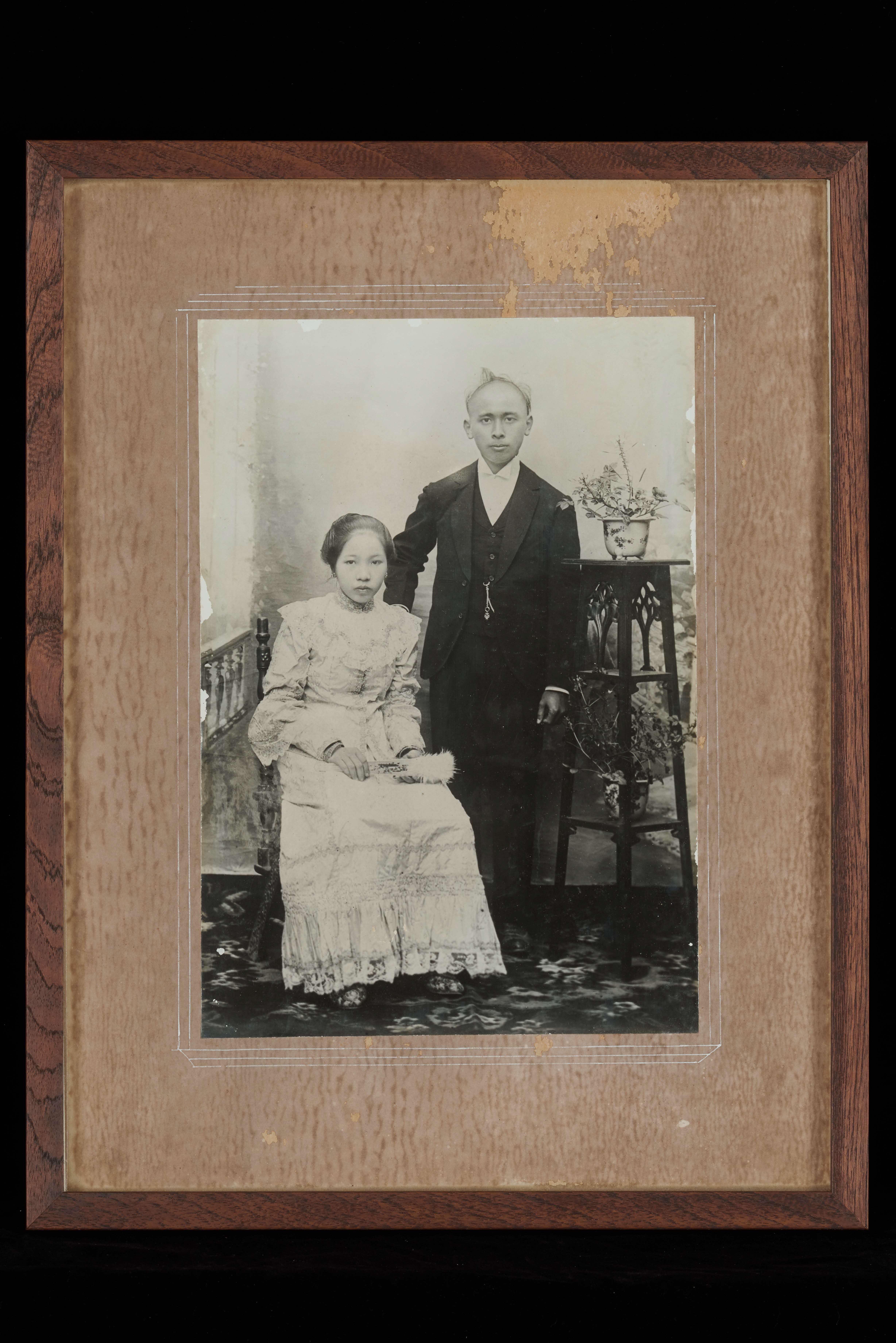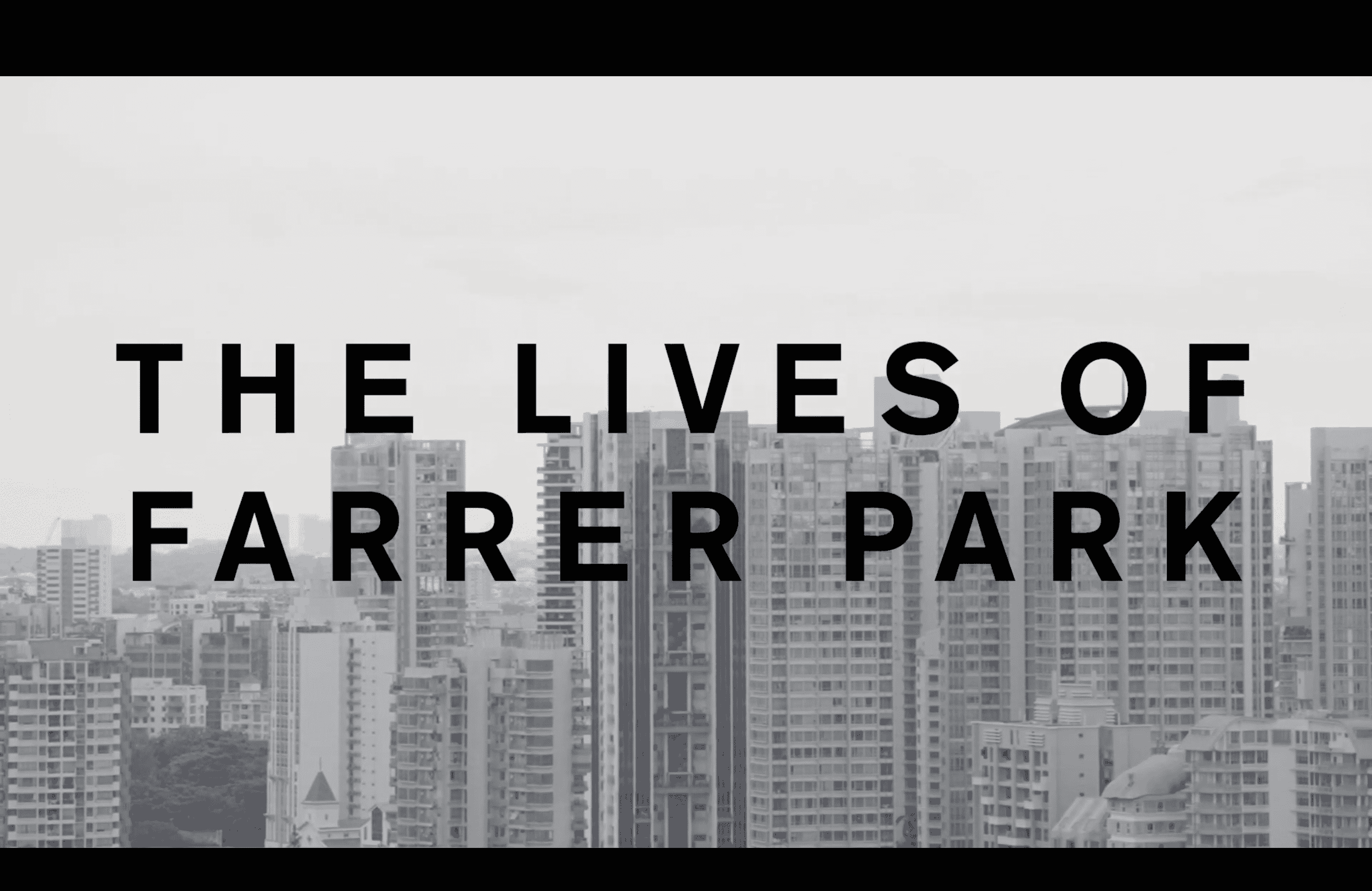The Faith in Books
|
Name of business: |
Wardah Books |
|
Business Location: |
58 Bussorah Street, Singapore 199474 |
|
Business type: |
Bookstore |
|
Established: |
2002 |
Primarily selling Islamic books in English, Wardah Books is a bookstore run by Mr Ibrahim Tahir, who recognises that Bussorah Street is a place steeped in the history of Kampong Gelam as a Malay literary hub. His passion lies in the promotion of Islamic culture and books.
During Singapore’s colonial period, 58 Bussorah Street was the home of Chief Kadi Haji Ali. He was a Muslim judge who oversaw court cases relating to marriage and divorce and issued rulings according to Islamic law. He worked diligently on the first floor of the shophouse, conducting the nikah (marriage contract) and the cerai (divorce) for Malay couples. During pockets of free time between cases, he sold books on Islamic topics such as the Hajj, a religious pilgrimage that all Muslims need to undergo at least once in their life. Taking on the responsibilities of the highest-ranking Islamic officer, he would stand on the steps of his house to declare the first day of Ramadan and Syawal to the crowds of people gathered. As his voice rang loud and clear in the air, the assembly would disperse in excitement and frenzy. People ran back to their respective kampongs with the words, “esok raya!” (Raya’s tomorrow) spilling from their smiling lips.
Today, the shophouse has weathered the changes of Kampong Gelam over the decades, and its legacy lives on in the bookstore that resides in its walls. Wardah Books is a bookstore that primarily sells Islamic books in English and is run by Mr Ibrahim Tahir. He recognises that Bussorah Street is a place steeped in history—more specifically, the history of Kampong Gelam as a Malay literary hub. Various Malay publishers had settled in the area to set up bookstores, creating a vibrant centre of Malay reading resources where the closest bookshop was always just around the corner. However, these bookshops have since closed or moved away, making Wardah Books one of the few bookstores in Kampong Gelam today, alongside others such as Nurul Anwar Bookstore, Salaam Media, and Qissoh Books. The shophouse has an immaculate storefront, coated in white and furnished with arched windows. Inside the shop are shelves upon shelves of books—with some that nearly reach the ceiling. It is akin to stepping into a library, while the yellow lights and comfortable sofas give one the feeling of visiting a cosy home.
In 2002, Mr Ibrahim started Wardah Books because of the mismatch between the texts that Muslim readers wanted to read, and the English Islamic books found at local bookstores. He wanted to meet the needs of the literati and make texts more readily available for Muslim readers. “We try to curate the type of books that people read, so we try to bring in good books. Books that matter,” Mr Ibrahim says. The Islamic texts he sources cover topics like politics, philosophy, and world events such as World War II. Lately, he discovered that people are also interested in books about mental health, self-improvement, and children’s literature, and has included those categories on the shelves as well.
The bookstore’s name, Wardah Books, is special to Mr Ibrahim because there are multiple layers to its meaning. On the first level, wardah is Arabic for rose, which was the favourite flower of Mr Ibrahim’s late mother. Wardah is also used in sufi poetry—a genre of Islamic devotional literature that has shaped the bookshop’s core principles—to symbolise the beloved along with the things surrounding it. By bringing in the nightingale, which represents the lover, Mr Ibrahim shows the intimate relationship between rose and nightingale. “Wardah Books is the rose, and the nightingales are the readers of Wardah,” Mr Ibrahim says. The rose is also found in the bookshop’s logo, geometrically constructed using circles and squares. The outermost circle represents the cosmos macrocosm, which refers to the universe as an encompassing system. The innermost circle, located at the centre, refers to the human microcosm. The three squares of varying sizes symbolise the levels of islam, iman and ihsan, the three fundamental levels of the religion. Together, these elements form a holistic characterisation of Wardah Books, in the form of an intricate rose.
When Wardah Books started out, Mr Ibrahim struggled greatly to keep the business going. “It takes a long time to establish a bookshop. It was a hard-fought thing to establish ourselves in people’s minds, people’s consciousness, that we are a bookshop here,” Mr Ibrahim says. “So, it was one of those really low times when we were thinking of selling the businesses.” But even at the bookshop’s lowest point, Mr Ibrahim could not bring himself to sell it away. It was an inseparable part of his reality, and he could not imagine doing anything else. To keep Wardah Books going, he put in the hours to do freelance work. Often, he took on jobs for museums that required him to work late into the night. Though it cost him his blood, sweat and tears, he pushed on for the sake of the bookshop.
Mr Ibrahim is glad that he did not give up on Wardah Books; the business has finally established itself at Kampong Gelam. Being able to sustain the business is especially important to him, because he sees that the history of Malay publishing and reading is deeply ingrained in Bussorah Street and wishes to continue this legacy. Mr Ibrahim hopes that Wardah Books will be remembered as a place that served the community; a place that contributed to the distinct Islamic character of Kampong Gelam and helped build a community of active readers.
Interviewed by Nur Khairiah Ahmad Samson and Syazwani Amrun on 19 May 2022.




